Philippines men's national basketball team
The men's national basketball team of the Philippines which is currently sponsored by Smart Communications won a bronze medal in the 1954 FIBA World Championship for men and a fifth-place finish in the 1936 Summer Olympics, the two best finishes of any Asian team in the history of the top two international basketball tournaments. Its national basketball federation is the Samahang Basketbol ng Pilipinas (SBP).
The current national team, nicknamed "Team Pilipinas" (Team Philippines), is sponsored by the Smart Communications and the Samahang Basketbol ng Pilipinas. The coach of the team from the 2009 FIBA Asia Championship tournament was Joseller "Yeng" Guiao. The team will be mentored by Rajko Toroman at the 2011 FIBA Asia Championship.
Aside from the bronze medal at the World Championships and the fifth-place Olympic finish, the Philippines has won five FIBA Asian Championships for Men, four Asian Games Men's Basketball gold medals and a consistent winner at the Southeast Asian Games and at the Southeast Asia Basketball Association. The country has also participated in four FIBA World Championships and seven Olympic Basketball Tournaments.
History
| Medal record |
Competitor for  Philippines Philippines |
| Mens' Basketball |
| FIBA World Championship |
| Bronze |
1954 Rio de Janiero |
Team competition |
| FIBA Asia Championship |
| Gold |
1960 Manila |
Team competition |
| Gold |
1963 Taipei |
Team competition |
| Gold |
1967 Seoul |
Team competition |
| Gold |
1973 Manila |
Team competition |
| Gold |
1986 Kuala Lumpur |
Team competition |
| Silver |
1965 Kuala Lumpur |
Team competition |
| Silver |
1971 Tokyo |
Team competition |
| Bronze |
1969 Bangkok |
Team competition |

Carlos Loyzaga.
The Philippines is the traditional basketball power in Southeast Asia. With the qualification system by FIBA Asia (formerly Asian Basketball Confederation or ABC) in which zonal championships are held to determine which teams will qualify for the FIBA Asia Championship, this virtually assures that the Philippines will participate in every Asian Championship.
Early years
The Philippines dominated the Far Eastern Games and the Southeast Asian Games but only partially dominate the Asian Games and FIBA Asia Championship with rivals like Israel, (South) Korea, Lebanon, Japan and especially China. In the 1950s-1960s, the Philippines was among the best in the world, producing world-class players like Carlos Loyzaga, Lauro Mumar, Mariano Tolentino and Edgardo Ocampo. Loyzaga was even a part of the 1954 FIBA World Championship Mythical Team selection, where the Philippines won the Bronze medal.
In the first four editions of the ABC Championship, the Philippines won three titles, the only loss coming from Japan in Kuala Lumpur, during the third championship. The Japanese scored a 71–65 win in the final group; the Philippines earlier won against them in the preliminary round by 20 points.
With an Asian Championship, the Philippines qualified for the 1960 Olympics. In Rome, the Philippines did not qualify for the medal round, but did beat Spain in the preliminaries, ultimately finishing 11th out of 16 nations. The country was supposed to host the 1963 World Championships, but president Diosdado Macapagal refused to allow players from Yugoslavia and other communist countries to enter the country.. This caused the Philippines, despite winning the Asian Championships, to qualify via a pre-Olympic tournament, in which they were unsuccessful.[1]
In the fifth championship at Bangkok, the Philippines finished third, after a one-point loss against Japan, and an 86–95 loss against (South) Korea. The Asian Games tournaments were worse, as the Philippines was not able to finish in the top four during the 1960s. In the 1971 Asian Championship, the game against the Japanese turned out to be the deciding game, and the Japanese won anew, 93–69. Despite the loss, the team qualified to the Olympics in Munich where the Philippines barely missed the cellar after a six-point win against Senegal. The Munich Massacre occurred, and with Egypt leaving in protest, the Philippines avenged their loss against the Japanese with a 80–73 classification round win to finish 13th place. The next day, the controversial gold medal game against the USA and the Soviet Union was held, in which the Soviets won, breaking the Americans' championship streak since 1936. This will be the last Olympic appearance of the Philippines to date.
The next Asian championship at Manila ended triumphantly for the Filipinos, as they finished first, beating the Japanese and the Koreans handily. The championship earned the Fiilipinos at trip to San Juan, Puerto Rico for the 1974 FIBA World Championship, in which they were grouped with the United States. The Philippines finished winless in the preliminaries, but managed to win twice in the classification round to avoid a last place finish.
Creation of the PBA
In 1975, after disputes with the Basketball Association of the Philippines (BAP), nine teams pulled out of BAP's jurisdiction and founded the professional Philippine Basketball Association (PBA), taking along all the best players with them. This caused the BAP to send weakened teams in the subsequent international tournaments. This caused the Filipinos to fail to defend their Asian championship in 1975, with India earning a shock blowout win to deny the Philippines a top-4 finish. The Chinese won the championship, beginning their unbeaten championship run that will last into 1983.
In 1978, the country finally hosted the World Championships, but with the best players playing in the PBA, the Philippines dead last in the final group, and were blown out by Australia in the playoff for seventh place. The final went into overtime, with Yugoslavia eking out a 1-point win against the Soviet Union. This is the last appearance of the Philippines in the World Championship to date.
To offset the loss of players to the PBA, the BAP delegated to Danding Cojuangco the formation of a team that will train together for several months, in essence, a club team unaffiliated with any league. The result was the Northern Cement basketball team coached by the American Ron Jacobs that had four naturalized players. In the 1982 Asian Games in New Delhi, the team finished fourth behind Korea, China and Japan. In the 1983 Asian Championship in Hong Kong, the Philippines forfeited their preliminary round games after a misunderstanding the rules caused the Philippines to play more than one naturalized player on the floor at the time. The Philippines, without their naturalized players, made short work of the classification round to finish in ninth place.
Future PBA stars such as Allan Caidic, Samboy Lim and Hector Calma remained a part of the Northern Cement team, and competed in the 1985 Asian Championship in Kuala Lumpur. The Philippines won by more than 10 points in the all of their preliminary round games, including a 17-point win against Japan, knocking them out of the tournament. In the final group, the Philippines won by four points against Korea and ten points against Malaysia to set up a de facto championship gambruaryagainst China. The Philippines won by ten points to claim the Asian Championship and qualify for the 1986 FIBA World Championship.
On February 22, 1986, the People Power Revolution erupted and forced president Ferdinand Marcos into exile. Cojuangco, a known ally of Marcos, also left the country, causing the team not to participate in the World Championship. The team did participate in the 1986 Asian Games, finishing third behind China and Korea.
Professional era
In 1989, FIBA allowed professionals to play in their tournaments. This caused the BAP to have an agreement with the PBA in which the latter will form national teams for the Asian Games, while the former will do so in other tournaments. In 1990, the Philippines sent an all-pro national team, coached by Robert Jaworski, to regain the country's basketball supremacy in the Asian Games but the team lost in the final against China and settled for a silver medal. The team includes 1990 PBA Most Valuable Player Caidic, and Lim, who were both selected in the Asian Games Mythical Five Selections.
In the 1991 Asian Championship in Kobe, the Philippines finished second in their preliminary round group behind China, but a loss against Japan caused their elimination, ending up in seventh place, when Jordan forfeited the game. In 1993, the Philippines failed to qualify in the quarterfinal groups, suffering losses against Korea (five points) and the UAE (four points) en route to an 11th place finish.
In the 1994 Asian Games in Hiroshima, the Philippines, coached by the American Norman Black, sent in a team entirely composed of PBA players. The team finish second in the preliminary round, losing to Korea. The loss to Korea meant that the Philippines has to face China; despite losing, the Chinese had their slimmest winning margin in the tournament with nine points, en route to their gold medal. The Philippines were upended by the hosts Japan in the bronze medal game, losing by three points in overtime.
With no PBA players on the roster, the team on the 1995 Asian Championship in Seoul finished last in the preliminary round, but managed to win two games in the classification round to finish 12th out of 19 teams. The team that went to Riyadh for the ABC Championship 1997 did only marginally better; they still finished last in the preliminary round but topped the classification round group en route to a ninth place finish.
In 1998, the PBA formed the Philippine Centennial Team coached by the American Tim Cone that captured the 21st William Jones Cup championship but finished with the bronze medal in the 1998 Asian Games held in Bangkok. The Filipinos faced their old nemesis Korea in the quarterfinals and were blown out by twenty points, which lead them to face China in the semifinals anew. The result would be the same as four years earlier, with the Chinese winning by nine. The Filipinos won the bronze medal game though, against Kazakhstan.
In the 1999 Asian Championship in Fukuoka, the Philippines, with no PBA players on their roster, finished last in the preliminary round, and second in the classification round to finish 11th out of 15 teams. In Shanghai for the 2001 Asian Championship, the Philippines was suspended by FIBA due to leadership disputes at the BAP. This caused the country to miss their first Asian championship. By 2002, a compromise was sorted out, and the Philippines was allowed to participate in the 2002 Asian Games, coached by Jong Uichico.
In Busan, the Philippines easily qualified for the quarterfinals, in which they are grouped with China, Japan and Chinese Taipei. The Philippines won by five points against Japan, and 14 points against Chinese Taipei. The game against China wasn't as close, with the Philippines losing by 41 points, but this assured that they won't have to face China in the semifinals. For the third consecutive time, the Filipinos and Koreans faced in the semifinals, with the same result: the Koreans won over the Philippines, this time by one point. Up by two points, Olsen Racela missed two free throws, that led to a Korean three-pointer at the buzzer to eliminate the Filipinos. The team would lose in the bronze medal game against Kazakhstan by 2 points as Korea defeated China in overtime by a basket to win Asian Games gold for the first time since 1970.
With no PBA players in the roster, the 2003 Asian Championship in Harbin will be the worst performance by the team in history: a 15th place finish out of 16 teams. Unlike in 1997 and 1999, the Philippines had one win in the preliminary round (against Jordan). However, in the classification round, the Philippines emerged winless in a group containing Syria, Kuwait and Hong Kong. Only a blow out win against Malaysia saved the Philippines from dropping to the cellar. After the championship, BAP was heavily criticized and took steps to strengthen the team. However, after a loss against the Parañaque Jets, a team composed of politicians, actors and amateurs by the BAP-managed team, another leadership crisis in the BAP ensued which caused another suspension from FIBA. As a result, the Philippines was not able to participate in the FIBA Asia Championship 2005 and the 2006 Asian Games.
SBP era
After the conclusion of the leadership struggle that saw the Samahang Basketbol ng Pilipinas, an organization backed by the PBA among others, being recognized by both FIBA and the Philippine Olympic Committee, the Philippines was reinstated by FIBA. In the hastily-assembled team for the FIBA Asia Championship 2007 in Tokushima, the PBA-backed Philippine team defeated China, which didn't send their best team since they already qualified for the 2008 Olympics, but lost to Iran and Jordan to bow out of contention. The Filipinos and Chinese met again for the ninth place game in which the Filipinos won by two points.
With Yeng Guiao coaching for the FIBA Asia Championship 2009 in Tianjin, the Philippines won their first two games, against Sri Lanka and Japan, but with qualification for the eighth-finals certain, they were beaten by Korea to settle second in the preliminary round. In the eighth-finals, the team defeated Chinese Taipei and Kuwait, but were beaten by defending champions Iran to send the team into a quarterfinal match-up with Jordan. The Jordanians prevailed, and the Philippines lost two more consecutive classification games, the last to Korea, to settle for eighth place.
Following the Northern Cement model of the 1980, the SBP formed Smart Gilas, backed by Manuel V. Pangilinan, as a developmental team that will participate in the 2010 Asian Games and the 2011 FIBA Asia Championship.
FIBA suspensions
1963
In 1963, FIBA suspended the Philippines for its failure to stage the 1963 FIBA World Championship after President Diosdado Macapagal refused to allow players from Yugoslavia and other communist countries to enter the country. Later, the Philippines, despite being the Asian champion, was forced to play in a pre-Olympic tournament in order to qualify in the 1964 Summer Olympics.[1]
2001
The Basketball Association of the Philippines leadership crisis worsened after a lengthy feud between the group of Graham Lim and Tiny Literal and the group of Freddie Jalasco and Lito Puyat which resulted in FIBA's suspension of the basketball NSA.
However, a few months after, FIBA stepped-in and ordered an election that resulted in Literal's victory as the President of the BAP. The suspension was quickly lifted and the Philippines was able to compete in the Southeast Asian Games in Malaysia.[1]
2005-2007
The Philippines was suspended by the International Basketball Federation on July 2005 after a long standing feud between the Philippine Olympic Committee and the BAP.
The story began on April 10, 2005, when the BAP-sponsored Cebuana-Lhuillier Philippine National team (composed of little-known amateur players) lost to a lowly Parañaque Jets team (made up of showbiz personalities) in an NBC Preseason tournament at the Rizal Memorial Coliseum. After hearing the news, POC President Jose "Peping" Cojuangco called for improvements on the national team, most notably, the sending of a new team made up of professionals from the Philippine Basketball Association.
While both parties, with the involvement of the Philippine Basketball Association, the Philippine Basketball League, the UAAP and the NCAA, reportedly agreed on an agreement on the formation of a new national team, things soon returned to the usual verbal war. The POC, through a vote, first suspended, then in a later meeting, expelled the BAP as the official National Sports Association (NSA) member and installed a new member in the Philippine Basketball Federation. The BAP, under new President Joey Lina, said that the expulsion was unconstitutional in the by-laws of the POC.
The situation worsened when both parties still could not agree on who will banner the national team for the Southeast Asian Basketball Association tournament, a qualifier for the FIBA-Asia tournament in Doha, Qatar. FIBA Secretary-General Patrick Baumann, then handed the suspension of the RP team from any FIBA-sanctioned tournament.
In hopes of securing a long-term solution, FIBA, in a memorandum, ordered the PBA, PBL, UAAP, NCAA and Joey Lina (as a person or in Lina's claim, as a representative of the BAP) to form a new constitution or a formation of a new basketball body.
By March 2006, four stakeholders have signed into the propose new basketball body, which later named as Pilipinas Basketball. Lina, however, has refused to sign on the memorandum, citing unbalanced factors that was put in the draft for a new body. After the four stakeholders met with Baumann in South Korea, the suspension was not even lifted nor was the draft for a new body was even accepted since Lina has not signed it.
However, in a significant move by both Pilipinas Basketball and the BAP at the FIBA Congress in Japan, both parties signed an agreement that will pave the way for the formation of a new cage body on or before September 30. The deadline lapsed and no significant moves had been made until February 5, 2007.[1]
After several meetings between FIBA Secretary-General Patrick Baumann, PB, and BAP officials in Geneva and Bangkok, a Unity Congress was held in which BAP, PB and Baumann attended. The BAP and PB agreed to merge to create the Samahang Basketbol ng Pilipinas (SBP) as the new national federation. The Philippine Olympic Committee recognized the group as the new national governing body for basketball, after which the FIBA finally lifted the almost two-year-old suspension it imposed upon the country.
Competitions
| Olympic Games Record |
| Year |
Round |
Position |
Pld |
W |
L |
.svg.png) 1936 1936 |
5/8 |
5/23 |
5 |
4 |
1 |
 1948 1948 |
9/12 |
12/23 |
8 |
4 |
4 |
 1952 1952 |
Preliminary round |
T-9/23 |
5 |
3 |
2 |
 1956 1956 |
Quarterfinals |
7/15 |
8 |
4 |
4 |
 1960 1960 |
9/12 |
11/16 |
8 |
4 |
4 |
 1964 1964 |
Did not qualify |
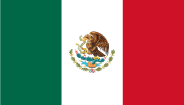 1968 1968 |
13/16 |
13/16 |
9 |
3 |
6 |
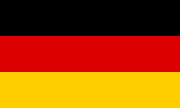 1972 1972 |
13/16 |
13/16 |
9 |
3 |
6 |
| 1976 to 2008 |
Did not qualify, participate or suspended |
| Total |
7/17 |
0 medals |
52 |
25 |
27 |
|
Asian Championships
| Asian Championship Record |
| Year |
Position |
Pld |
W |
L |
.svg.png) 1960 1960 |
1st place |
9 |
9 |
0 |
 1963 1963 |
1st place |
11 |
9 |
2 |
 1965 1965 |
2nd place |
5 |
4 |
1 |
 1967 1967 |
1st place |
9 |
9 |
0 |
 1969 1969 |
3rd place |
9 |
7 |
2 |
 1971 1971 |
2nd place |
8 |
7 |
1 |
 1973 1973 |
1st place |
9 |
9 |
0 |
 1975 1975 |
5th place |
9 |
5 |
4 |
 1977 1977 |
5th place |
9 |
5 |
4 |
 1979 1979 |
4th place |
7 |
4 |
3 |
 1981 1981 |
4th place |
7 |
4 |
3 |
 1983 1983 |
9th place |
5 |
3 |
2 |
 1986 1986 |
1st place |
6 |
6 |
0 |
 1987 1987 |
4th place |
7 |
4 |
3 |
 1989 1989 |
8th place |
7 |
2 |
5 |
 1991 1991 |
7th place |
9 |
5 |
4 |
 1993 1993 |
11th place |
6 |
3 |
3 |
 1995 1995 |
12th place |
7 |
2 |
5 |
 1997 1997 |
9th place |
6 |
3 |
3 |
 1999 1999 |
11th place |
6 |
2 |
4 |
 2001 2001 |
Suspended |
 2003 2003 |
15th place |
7 |
3 |
4 |
 2005 2005 |
Suspended |
 2007 2007 |
9th place |
7 |
5 |
2 |
 2009 2009 |
8th place |
9 |
4 |
5 |
| Total |
8 medals |
174 |
113 |
61 |
|
Asian Games
| Asian Games Record |
| Year |
Position |
Pld |
W |
L |
 1951 1951 |
1st place |
4 |
4 |
0 |
.svg.png) 1954 1954 |
1st place |
6 |
6 |
0 |
 1958 1958 |
1st place |
7 |
6 |
1 |
 1962 1962 |
1st place |
7 |
7 |
0 |
 1966 1966 |
6th place |
7 |
4 |
3 |
 1970 1970 |
5th place |
8 |
4 |
4 |
.svg.png) 1974 1974 |
4th place |
|
|
|
 1978 1978 |
5th place |
|
|
|
 1982 1982 |
4th place |
|
|
|
 1986 1986 |
3rd place |
4 |
2 |
2 |
 1990 1990 |
2nd place |
6 |
4 |
2 |
 1994 1994 |
4th place |
6 |
3 |
3 |
 1998 1998 |
3rd place |
7 |
4 |
3 |
 2002 2002 |
4th place |
7 |
4 |
3 |
 2006 2006 |
Suspended |
 2010 2010 |
TBD |
 2014 2014 |
TBD |
| Total |
14/15 |
69 |
49 |
20 |
|
Southeast Asian Basketball Championships
| Southeast Asian Basketball Championships Records |
| Year |
Position |
Pld |
W |
L |
 1994 1994 |
4th place |
|
|
|
 1998 1998 |
1st place |
5 |
5 |
0 |
 1999 1999 |
1st place |
5 |
5 |
0 |
 2001 2001 |
1st place |
5 |
5 |
0 |
 2003 2003 |
1st place |
3 |
3 |
0 |
 2005 2005 |
suspended |
 2007 2007 |
1st place |
4 |
4 |
0 |
 2009 2009 |
1st place |
4 |
4 |
0 |
| Total |
6 golds |
27-0 (excl. 1994) |
|
| SEA Games Records |
| Year |
Position |
Pld |
W |
L |
 1977 1977 |
1st place |
- |
- |
- |
 1979 1979 |
1st place |
- |
- |
- |
.svg.png) 1981 1981 |
1st place |
- |
- |
- |
 1983 1983 |
1st place |
- |
- |
- |
 1985 1985 |
1st place |
- |
- |
- |
 1987 1987 |
1st place |
- |
- |
- |
 1989 1989 |
2nd place |
- |
- |
- |
 1991 1991 |
1st place |
- |
- |
- |
 1993 1993 |
1st place |
- |
- |
- |
 1995 1995 |
1st place |
- |
- |
- |
 1997 1997 |
1st place |
- |
- |
- |
 1999 1999 |
1st place |
- |
- |
- |
 2001 2001 |
1st place |
5 |
5 |
0 |
 2003 2003 |
1st place |
0 |
0 |
0 |
 2005 2005 |
Suspended |
 2007 2007 |
1st place |
4 |
4 |
0 |
 2009 2009 |
Lack of facilities |
| Total |
14 golds |
|
|
|
|
Far Eastern Championship Games
| FarEast Games Records |
| Year |
Position |
Pld |
W |
L |
 1913 1913 |
1st place |
2 |
2 |
0 |
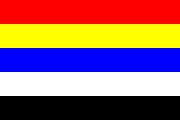 1915 1915 |
1st place |
2 |
2 |
0 |
 1917 1917 |
1st place |
2 |
2 |
0 |
.svg.png) 1919 1919 |
1st place |
2 |
2 |
0 |
 1921 1921 |
2nd place |
2 |
1 |
1 |
 1923 1923 |
1st place |
2 |
2 |
0 |
.svg.png) 1925 1925 |
1st place |
2 |
2 |
0 |
 1927 1927 |
1st place |
2 |
2 |
0 |
 1930 1930 |
1st place |
2 |
2 |
0 |
.svg.png) 1934 1934 |
1st place |
2 |
2 |
0 |
| Total |
9 golds |
20 |
19 |
1 |
Squad
Philippine roster for the FIBA Asia Championship 2009 in Tianjin, China.
|
| Players |
Coaches |
| Pos. |
# |
Name |
Age - DOB |
Ht. |
Club |
Club nat. |
| 1.5 !G |
4 |
Dillinger, Jared |
&000000000000002500000025 - January 6, 1984(1984-01-06) |
77 !6 ft 5 in (1.96 m) |
Talk 'N Text Tropang Texters |
PHI ! |
| 3.5 !F |
5 |
Raymundo, Kerby |
&000000000000002800000028 - January 19, 1981(1981-01-19) |
79 !6 ft 7 in (2.01 m) |
Purefoods TJ Giants* |
PHI ! |
| 1.5 !G |
6 |
Yap, James |
&000000000000002700000027 - February 15, 1982(1982-02-15) |
75 !6 ft 3 in (1.91 m) |
Purefoods TJ Giants* |
PHI ! |
| 4.5 !F/C |
7 |
Thoss, Sonny |
&000000000000002700000027 - December 12, 1981(1981-12-12) |
79 !6 ft 7 in (2.01 m) |
Alaska Aces* |
PHI ! |
| 5.0 !C |
8 |
Taulava, Asi (C) |
&000000000000003600000036 - March 2, 1973(1973-03-02) |
81 !6 ft 9 in (2.06 m) |
Coca-Cola Tigers |
PHI ! |
| 4.5 !F/C |
9 |
Aguilar, Japeth |
&000000000000002200000022 - January 25, 1987(1987-01-25) |
82 !6 ft 10 in (2.08 m) |
Smart Gilas |
PHI ! |
| 2.5 !G/F |
10 |
Norwood, Gabe |
&000000000000002400000024 - February 9, 1985(1985-02-09) |
78 !6 ft 6 in (1.98 m) |
Rain or Shine Elasto Painters |
PHI ! |
| 1.0 !PG |
11 |
Miller, Willie |
&000000000000003200000032 - July 13, 1977(1977-07-13) |
71 !5 ft 11 in (1.8 m) |
Barangay Ginebra Kings |
PHI ! |
| 4.5 !F/C |
12 |
Pennisi, Mick |
&000000000000003400000034 - March 13, 1975(1975-03-13) |
82 !6 ft 10 in (2.08 m) |
San Miguel Beermen |
PHI ! |
| 1.0 !PG |
13 |
Helterbrand, Jayjay |
&000000000000003200000032 - October 14, 1976(1976-10-14) |
72 !6 ft 0 in (1.83 m) |
Barangay Ginebra Kings |
PHI ! |
| 2.0 !SG |
14 |
Baguio, Cyrus |
&000000000000002800000028 - August 19, 1980(1980-08-19) |
74 !6 ft 2 in (1.88 m) |
Alaska Aces* |
PHI ! |
| 2.5 !G/F |
15 |
Santos, Arwind |
&000000000000002800000028 - June 10, 1981(1981-06-10) |
76 !6 ft 4 in (1.93 m) |
San Miguel Beermen |
PHI ! |
|
- Head coach
 Yeng Guiao Yeng Guiao
- Assistant coaches
 Gee Abanilla Gee Abanilla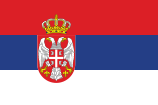 Rajko Toroman Rajko Toroman Kenneth Duremdes Kenneth Duremdes
- Scout
 Jong Uichico Jong Uichico
- Manager
 Jose Bayani Baylon Jose Bayani Baylon
- Legend
- (C) Team captain
- Club field describes current pro club
 Injured Injured
|
Notable Coaches
 Pedro Villanueva (1930) Pedro Villanueva (1930) Alfredo del Rosario (1934) Alfredo del Rosario (1934) Dionisio Calvo (1936, 1948, 1952) Dionisio Calvo (1936, 1948, 1952) Felicisimo Fajardo (1952-1966) Felicisimo Fajardo (1952-1966) Herminio Silva (1954) Herminio Silva (1954) Leo Prieto (1956) Leo Prieto (1956) Valentin "Tito" Eduque (1958, 1973-1974) Valentin "Tito" Eduque (1958, 1973-1974) Virgilio "Baby" Dalupan (1959, 1970) Virgilio "Baby" Dalupan (1959, 1970) Arturo Rius (1960) Arturo Rius (1960) Enrique Crame (1962) Enrique Crame (1962) Carlos Loyzaga (1967-1968) Carlos Loyzaga (1967-1968) Lauro Mumar (1969) Lauro Mumar (1969)
|
 Ignacio Ramos (1971-1972) Ignacio Ramos (1971-1972) Nicanor Jorge (1978) Nicanor Jorge (1978)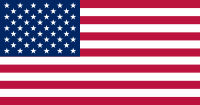 Ron Jacobs (1980-1986) Ron Jacobs (1980-1986) Joe Lipa (1986-1989,1991-1993,1995-1997,1999-2001) Joe Lipa (1986-1989,1991-1993,1995-1997,1999-2001) Robert Jaworski (1990) Robert Jaworski (1990) Norman Black (1994, 2006) Norman Black (1994, 2006) Tim Cone (1998) Tim Cone (1998) Jong Uichico (2002) Jong Uichico (2002) Chot Reyes (2005-2008) Chot Reyes (2005-2008) Yeng Guiao (2008-2009)[2][3] Yeng Guiao (2008-2009)[2][3] Rajko Toroman (2009-present)[4] Rajko Toroman (2009-present)[4]
|
Notable players
(Past and Present)
(Alphabetical Order by Surnames)
- Johnny Abarrientos (MVP, 2000 Philippines versus FIBA Asia All-Star Exhibition Game)
- Rommel Adducul (FIBA Asia All-Star, 1997-2000)
- Kurt Bachmann
- Carlos Badion (MVP, Mythical Five, 1960 Asian Basketball Confederation)
- Alexander "Boy Jugs" S. Hugo Jr.
- Charles Borck
- Allan Caidic (Mythical 5, 1990 Asian Games and 1994 Asian Games)
- Hector Calma
- Ramoncito Campos
- Jacinto Ciria Cruz
- Geronimo Cruz (MVP, Mythical 5, 1963 Australian Pan Pacific Games)
- Mariano Felomino
- Ramon Fernandez
- Danny Florencio
- Jovito Gonzales
- Robert Jaworski
- Avelino "Samboy" Lim (Mythical 5, 1990 Asian Games)
|
- Eduardo Lim
- Carlos Loyzaga (Mythical 5, 1954 World Basketball Championship and 1960 Asian Basketball Confederation)
- Ramon Manulat
- Jaime "Jimmy" Mariano
- Alfonso Marquez
- Lauro Mumar
- Gabe Norwood
- Edgardo Ocampo
- Ambrosio Padilla
- Adriano "Jun" Papa, Jr.
- Alvin Patrimonio
- Alberto "Big Boy" Reynoso
- Ponciano Saldaña
- Lou Salvador
- Asi Taulava
- Mariano Tolentino
|
Johnny Abarrientos: Philippine basketball's and Asia's best point guard of the 1990s. Abarrientos played for the Philippines in the 1991 Southeast Asian Games and the 1994 Asian Games. He was later selected to play for the Philippine Centennial Team to represent the country in the 1998 Asian Games and the 21st William Jones Cup. Abarrientos was named Most Valuable Player in an exhibition game against the FIBA Asia All-Stars team led by compatriot Romel Adducul.
Allan Caidic: Asia's most feared three-point shooter and arguably one of the greatest players ever to play for the Philippines internationally. He is a four-time veteran of the Asian Games (1986, 1990, 1994, 1998) and a two-time William Jones Cup champion (1985, 1998). Early in his career, Caidic played a major role for the Philippines in capturing the 1985 Southeast Asian Games and the 1985-1986 FIBA Asia Championship. In 1990, he and Samboy Lim were named at the Asian Games Mythical Five Selection after leading the Philippines to a silver medal finished. In 1994, he was the Asian Games basketball tournament's leading scorer and was named, for the second time, to the all-tournament Mythical Five selection. In 1998, he represented the country for the final time with the Philippine Centennial Team.
Robert Jaworski: The world's oldest professional basketball player and arguably the Philippines' most popular basketball player of all time. He represented the country in numerous international tournaments and is one of the last surviving Filipino basketball players to play in the FIBA World Championship and the Summer Olympics.
Samboy Lim: He represented the Philippines in the 1982 Asian Youth Championship and in the 1985-1986 FIBA Asia Championship. He was later named alongside Allan Caidic into the 1990 Asian Games Mythical Five selection after leading the national team to the finals.
Carlos Loyzaga: Probably the greatest Filipino international basketball player of all time. He led the Philippines to four consecutive Asian Games gold medals and three Asian championship titles. His biggest achievement was leading the country to a third place finish and the bronze medal in the 1954 FIBA World Championship, the best finish by an Asian country in the history of the quadrennial tournament. He was later named into the all-tournament Mythical Five selection after finishing third leading scorer of that year's tournament. In 1960, he and Carlos Badion were named at the Asian Basketball Confederation Mythical Five Selection after leading the Philippines to the first ever Asian championship crown.
Ambrosio Padilla: One of the greatest Filipino basketball players of the pre-World War II era. He played for the Philippines in the Far Eastern Games before leading the country to a fifth place finish in the 1936 Summer Olympics, the best finish by an Asian country in the history of the Summer Olympics men's basketball tournament.
Luis "Lou" Salvador: One of the offensive players in Philippine basketball history. Salvador played for the Philippines in several Far Eastern Games tournaments where, in 1923, he set an all-time record for the most points scored by a Filipino in a single international game with 116 points against China to lead the Philippines to the gold medal. That record remains unbroken to this day.
Latest scores
FIBA Asia Championship 2009
August 16
14:00 |
7th place |
Philippines  |
80–82 |
 Korea Korea |
|
Tianjin Arena, Tianjin |
C/S9, BTV |
| Scoring by quarter: 19-26, 24-16, 19-20, 18-20 |
August 15
14:00 |
Classif. 5th-8th |
Philippines  |
65–83 |
 Qatar Qatar |
|
Tianjin Arena, Tianjin |
C/S9, BTV |
| Scoring by quarter: 16-23, 16-26, 8-17, 25-17 |
August 14
14:00 |
Knockout round |
Philippines  |
70–81 |
 Jordan Jordan |
|
Tianjin Arena, Tianjin |
C/S9, BTV |
| Scoring by quarter: 22-17, 23-16, 22-19, 14-18 |
August 12
9:00 |
Eighth final round |
Philippines  |
85–71 |
 Kuwait Kuwait |
|
Tianjin Arena, Tianjin |
C/S9, BTV |
| Scoring by quarter: 17-13, 23-16, 20-22, 25-20 |
August 11
11:00 |
Eighth final round |
Philippines  |
78–88 |
 Iran Iran |
|
Tianjin Arena, Tianjin |
C/S9, BTV |
| Scoring by quarter: 14-27, 20-24, 24-23, 20-14 |
August 10
16:00 |
Eighth final round |
Philippines  |
77–70 |
 Chinese Taipei Chinese Taipei |
|
Tianjin Arena, Tianjin |
C/S9, BTV |
| Scoring by quarter: 16-21, 17-14, 29-19, 15-16 |
August 8
21:00 |
Preliminary round |
Philippines  |
56–69 |
 Korea Korea |
|
Tianjin Arena, Tianjin |
C/S9, BTV |
| Scoring by quarter: 14-17, 11-18, 19-16, 12-18 |
August 7
21:00 |
Preliminary round |
Philippines  |
78–69 |
 Japan Japan |
|
Tianjin Arena, Tianjin |
C/S9, BTV |
| Scoring by quarter: 17-22, 18-19, 21-12, 22-16 |
August 6
9:00 |
Preliminary round |
Philippines  |
115–31 |
 Sri Lanka Sri Lanka |
|
Tianjin Arena, Tianjin |
C/S9, BTV |
| Scoring by quarter: 28-9, 16-8, 42-9, 29-5 |
William Jones Cup 2009
Southeast Asia Basketball Association Championship 2009
Basketball at the 2007 Southeast Asian Games
December 13
3:00 p.m. THA |
|
Philippines  |
94–53 |
 Thailand Thailand |
|
Keelapirom Stadium, Nakhon Ratchasima |
NBN |
December 12
5:00 p.m. THA |
|
Philippines  |
108–60 |
 Malaysia Malaysia |
|
Keelapirom Stadium, Nakhon Ratchasima |
NBN |
December 9
3:00 p.m. THA |
|
Philippines  |
75–49 |
 Indonesia Indonesia |
|
Keelapirom Stadium, Nakhon Ratchasima |
NBN |
December 7
3:00 p.m. THA |
|
Philippines  |
136–82 |
 Cambodia Cambodia |
|
Keelapirom Stadium, Nakhon Ratchasima |
NBN |
FIBA Asia Championship 2007
August 4
11:15 AM JST |
9th place |
Philippines  |
78–76 |
 China China |
|
Asty Tokushima, Tokushima |
|
| Scoring by quarter: 19-22, 17-16, 23-23, 19-15 |
August 2
9:00 AM JST |
Consol. |
Philippines  |
89–58 |
 Kuwait Kuwait |
|
Asty Tokushima, Tokushima |
|
| Scoring by quarter: 23-10, 23-10, 27-27, 16-11 |
August 1
9:00 AM JST |
Consol. |
Philippines  |
104–69 |
 India India |
|
Tokushima Municipal Gymnasium, Tokushima |
|
| Scoring by quarter: 25-18, 22-23, 35-14, 22-14 |
July 31
9:00 AM JST |
Consol. |
Philippines  |
107–100 |
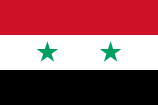 Syria Syria |
OT |
Asty Tokushima, Tokushima |
|
| Scoring by quarter: 18-24, 17-14, 30-27, 24-24, OT: 18-11 |
July 30
6:00 PM JST |
Prelims. |
Philippines  |
76–84 |
 Jordan Jordan |
|
Asty Tokushima, Tokushima |
RPN, BTV |
| Scoring by quarter: 18-13, 17-20, 16-21, 25-30 |
July 29
6:00 PM JST |
Prelims. |
Philippines  |
79–74 |
 China China |
|
Asty Tokushima, Tokushima |
RPN, BTV |
| Scoring by quarter: 19-25, 19-24, 18-8, 23-17 |
July 28
6:00 PM JST |
Prelims. |
Philippines  |
69–75 |
 Iran Iran |
|
Asty Tokushima, Tokushima |
RPN, BTV |
| Scoring by quarter: 14-19, 11-11, 11-21, 33-24 |
References
External links
Preceded by
(start) |
Asian Games Champions
1951, 1954, 1958, 1962 |
Succeeded by
Israel  |
Preceded by
(start) |
Southeast Asian Games Champions
1977, 1979, 1981, 1983, 1985, 1987 |
Succeeded by
Malaysia  |
Preceded by
 Malaysia Malaysia |
Southeast Asian Games Champions
1991, 1993, 1995, 1997, 1999, 2001, 2003 |
Succeeded by
(sport not held) |
Preceded by
(sport not held) |
Southeast Asian Games Champions
2007 |
Succeeded by
(incumbent) |
|
Preceded by
(start) |
ABC Champions
1960, 1963 |
Succeeded by
Japan  |
Preceded by
 Japan Japan |
ABC Champions
1967 |
Succeeded by
Korea  |
Preceded by
 Japan Japan |
ABC Champions
1973 |
Succeeded by
China  |
Preceded by
 China China |
ABC Champions
1986 |
Succeeded by
China  |
Preceded by
 Malaysia Malaysia |
SEABA Champions
1998, 1999, 2001, 2003 |
Succeeded by
Malaysia  |
Preceded by
 Malaysia Malaysia |
SEABA Champions
2007 |
Succeeded by
(incumbent) |
|
|
Philippines squad - 1936 Olympic basketball tournament |
|
 |
Ambrosio Padilla (c) • Charles Borck • Jacinto Ciria Cruz • Franco Marquicias • Primitivo Martinez • Jesus Marzan • Amador Obordo • Bibiano Quano • John Worrell • Fortunato Yambao
• Coach: Dionisio Calvo
|
 |
|
|
Philippines squad - 1948 Olympic basketball tournament |
|
 |
Manuel Araneta, Jr. • Ramon Campos, Jr. • Eduardo Decena • Andres dela Cruz • Felicisimo Fajardo (c) • Gabriel Fajardo • Edgardo Fulgencio • Antonio Martinez • Lauro Mumar • Francisco Vestil
• Coach: Dionisio Calvo
|
 |
|
|
Philippines squad - 1952 Olympic basketball tournament |
|
 |
Florentino Bautista • Ramon Campos, Jr. • Antonio Genato • Jose Gochangco • Rafael Hechanova, Sr. • Eduardo Lim • Carlos Loyzaga • Antonio Martinez (c) • Ponciano Saldaña • Meliton Santos • Antonio Tantay • Mariano Tolentino
• Coach: Felicisimo Fajardo
|
 |
|
|
Philippines squad - 1954 FIBA World Championship - Bronze medal |
|
 |
Bayani Amador • Rafael Barretto • Florentino Bautista, Jr. • Napoleon Flores • Benjamin Francisco • Antonio Genato • Carlos Loyzaga • Ramon Manulat • Lauro Mumar (c) • Mariano Tolentino • Francisco Rabat • Ponciano Saldaña
• Coach: Herminio Silva
|
 |
|
|
Philippines squad - 1956 Olympic basketball tournament |
|
 |
Carlos Badion • Rafael Baretto • Ramon Campos, Jr. • Loreto Carbonell • Antonio Genato (c) • Eduardo Lim • Carlos Loyzaga • Ramon Manulat • Leonardo Marquicias • Mariano Tolentino • Martin Urra • Antonio Villamor
• Coach: Leo Prieto
|
 |
|
|
Philippines squad - 1959 FIBA World Championship - 8th place |
|
 |
Carlos Badion • Constancio Ortiz • Eduardo Lim • Carlos Loyzaga • Loreto Carbonell • Edgardo Ocampo • Alfonso Marquez • Kurt Bachmann, Jr. • Mariano Tolentino • Emilio Achacoso • Roberto Yburan • Guillermo Baz • Ramon Manulat • Geronimo Cruz
• Coach: Virgilio Dalupan
|
 |
|
|
Philippines squad - 1960 Olympic basketball tournament |
|
 |
Emilio Achacoso • Kurt Bachmann, Jr. • Carlos Badion (c) • Narciso Bernardo • Geromino Cruz • Alfonso Marquez • Edgardo Ocampo • Constancio Ortiz • Eduardo Pacheco • Cristobal Ramas • Edgardo Roque • Roberto Yburan
• Coach: Arturo Ruis
|
 |
|
|
Philippines squad - 1968 Olympic basketball tournament |
|
 |
Orlando Bauzon • Danny Florencio • Robert Jaworski • Jimmy Mariano • Alfonso Marquez • Rogelio Melencio • Edgardo Ocampo • Adriano Papa, Jr. • Renato Reyes • Alberto Reynoso (c) • Joaquin Rojas • Elias Tolentino, Jr.
• Coach: Carlos Loyzaga
|
 |
|
|
Philippines squad - 1972 Olympic basketball tournament |
|
 |
Bogs Adornado • Narciso Bernardo • Ricardo Cleofas • Danny Florencio • Jimmy Mariano • Yoyong Martirez • Rogelio Melencio • Edgardo Ocampo (c) • Manny Paner • Adriano Papa, Jr. • Marte Samson • Freddie Webb
• Coach: Ignacio Ramos
|
 |
|
|
Philippines squad - 1974 FIBA World Championship - 13th place |
|
|
4 Alberto Reynoso | 5 Jimmy Mariano (c) | 6 Rogelio Melencio | 7 Robert Jaworski | 8 Francis Arnaiz | 9 Abet Guidaben | 10 Ramon Fernandez | 11 Bogs Adornado | 12 Ricardo Cleofas | 13 Manny Paner | 14 Yoyong Martirez | 15 David Regullano | Coach: Valentin Eduque
|
|
|
Philippines squad - 1978 FIBA World Championship - 8th place |
|
 |
Bernardo Carpio • Nathaniel Castillo • Alex Clarino • Ramon Cruz • Gregorio Gozum • Leopoldo Herrera • Federico Israel • Federico Lauchengco • Edward Merced • Cesar Teodoro • Steve Watson • Marty Tierra
• Coach: Nicanor Jorge
|
 |
|
 National sports teams of the Philippines National sports teams of the Philippines |
|
Association football ( M - W) • Baseball • Basketball (M - W) • Cricket • Rugby union • Rugby league • Tennis (M - W) • Volleyball |
|
|
International basketball |
|
| FIBA · Olympics · World Championship · World Rankings · U21 World Championship · U19 World Championship · U17 World Championship · Teams · Asian Games · Commonwealth Games · Mediterranean Games · Lusophony Games · Diamond Ball · Stanković Cup · Acropolis Tournament · Marchand Cup · World University Games |
|
| Africa |
FIBA Africa – Africa Championship
|
 |
|
| Americas |
FIBA Americas – Americas Championship
|
|
| Asia |
FIBA Asia – Asian Championship
|
|
| Europe |
FIBA Europe – EuroBasket
|
|
| Oceania |
FIBA Oceania – Oceania Championship
|
|
| Note: The Under-21 Championship is no longer held. |
|
|
National basketball teams of Asia (FIBA Asia) |
|
|
Afghanistan · Bahrain · Bangladesh · Bhutan · Brunei · Cambodia · China · Chinese Taipei · DPR Korea · Hong Kong · India · Indonesia · Iran · Iraq · Japan · Jordan · Kazakhstan · Korea · Kuwait · Kyrgyzstan · Laos · Lebanon · Macau · Malaysia · Maldives · Mongolia · Myanmar · Nepal · Oman · Pakistan · Palestine · Philippines · Qatar · Saudi Arabia · Singapore · Sri Lanka · Syria · Tajikistan · Thailand · Turkmenistan · United Arab Emirates · Uzbekistan · Vietnam · Yemen
|
|
Basketball in the Philippines  |
|
| Professional competitions |
|
|
| SBP |
Seniors: M, W | Juniors: M, W | Youth: M, W | Per era: 1980-86, 90, 98, Smart Gilas
|
|
| Amateur competitions |
Philippine Basketball League | Women's Philippine Basketball League | Liga Pilipinas (NBC, MVBA) | College (PCC, UAAP, NCAA, Champs)
|
|


